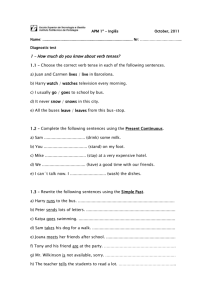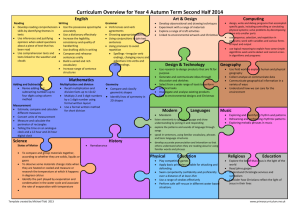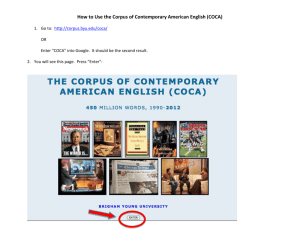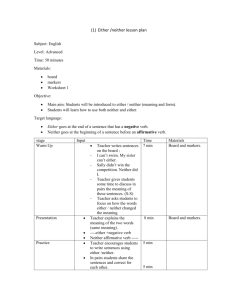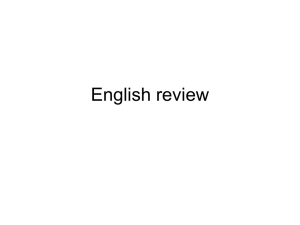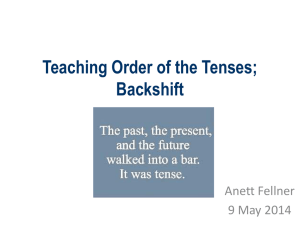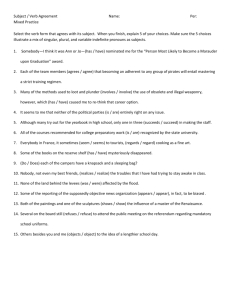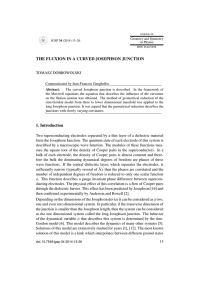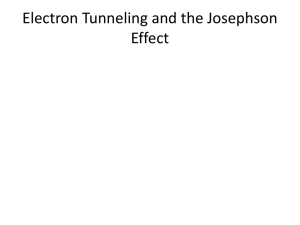Writing Guidelines
advertisement
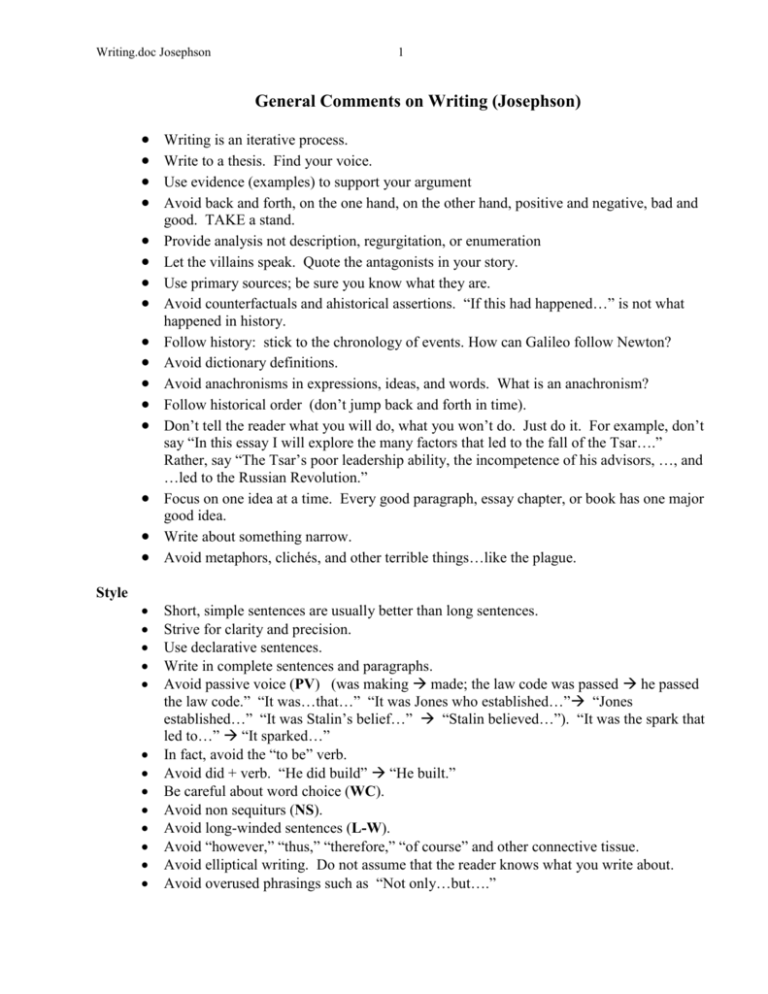
Writing.doc Josephson 1 General Comments on Writing (Josephson) Style Writing is an iterative process. Write to a thesis. Find your voice. Use evidence (examples) to support your argument Avoid back and forth, on the one hand, on the other hand, positive and negative, bad and good. TAKE a stand. Provide analysis not description, regurgitation, or enumeration Let the villains speak. Quote the antagonists in your story. Use primary sources; be sure you know what they are. Avoid counterfactuals and ahistorical assertions. “If this had happened…” is not what happened in history. Follow history: stick to the chronology of events. How can Galileo follow Newton? Avoid dictionary definitions. Avoid anachronisms in expressions, ideas, and words. What is an anachronism? Follow historical order (don’t jump back and forth in time). Don’t tell the reader what you will do, what you won’t do. Just do it. For example, don’t say “In this essay I will explore the many factors that led to the fall of the Tsar….” Rather, say “The Tsar’s poor leadership ability, the incompetence of his advisors, …, and …led to the Russian Revolution.” Focus on one idea at a time. Every good paragraph, essay chapter, or book has one major good idea. Write about something narrow. Avoid metaphors, clichés, and other terrible things…like the plague. Short, simple sentences are usually better than long sentences. Strive for clarity and precision. Use declarative sentences. Write in complete sentences and paragraphs. Avoid passive voice (PV) (was making made; the law code was passed he passed the law code.” “It was…that…” “It was Jones who established…” “Jones established…” “It was Stalin’s belief…” “Stalin believed…”). “It was the spark that led to…” “It sparked…” In fact, avoid the “to be” verb. Avoid did + verb. “He did build” “He built.” Be careful about word choice (WC). Avoid non sequiturs (NS). Avoid long-winded sentences (L-W). Avoid “however,” “thus,” “therefore,” “of course” and other connective tissue. Avoid elliptical writing. Do not assume that the reader knows what you write about. Avoid overused phrasings such as “Not only…but….” Writing.doc Josephson 2 Don’t drop quotes into place without introducing them: Smith writes, “….” Jones argues that “…..” Avoid “seem.” Either it happened, or it did not happen. Avoid redundancies such as “reflected back.” 3’s not 2’s: Use the one best verb, adverb, or adjective, or string of modifiers or phrases in a sentence, not two of them. But triplets are fine. Avoid semi-colons since most of you misuse them. Grammar, Spelling and Punctuation “Led” is the past tense of “lead.” It’s or Its? Do you know the difference? Practice subject-verb agreement. Capitalization: use much less than you think you need. Don’t split infinitives (SI) no matter what others say. This is the slippery slope to evil. to thoroughly define to define thoroughly Don’t use “impact” as verb, or I will impact your grade. In American writing, the quotation marks go on the outside of commas and periods, not before: ,” NOT ”, Avoid misplaced modifiers: modifiers (phrases, adverbs, adjectives) should be as close to the thing to be modified as possible. Your essays must have a title. Sources/How to Footnote Underline or italicize book or journal titles. Titles of articles and chapters go in quotation marks. If many citations from the same source in one paragraph, one note to document is o. k. For additional questions, see the Chicago Manual of Style, the style guide for historians. Footnote examples: 1) B. 2) B. Book1 Next mention of same book2 Journal article3 Next mention of same journal article4 Additional Reading 1 2 3 4 David Remnick, Lenin’s Tomb (New York: Random House, 1994), p. 37. Remnick, Lenin’s Tomb, p. 53. First name Last name, “Article Title,” Journal Name, vol. #, no. # (month/day/year): 52. Last name, “Short Article Title,” 57. Writing.doc Josephson 3 George Orwell, "Politics and the English Language" (1946) at https://www.mtholyoke.edu/acad/intrel/orwell46.htm Mark Twain, “The Awful German Language” (1880) at http://german.about.com/library/blmtwain01.htm

